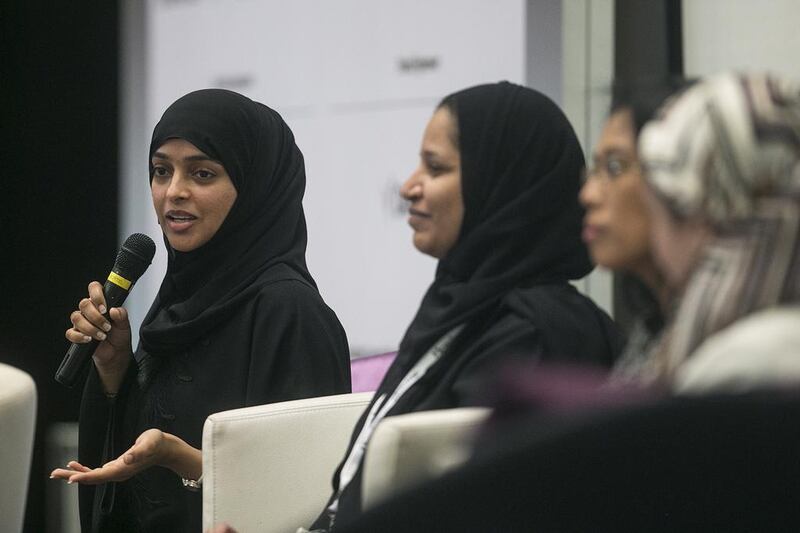ABU DHABI // The role of women in the security industry is evolving but more needs to be done to attain complete gender equality in the field, female IT and security experts say.
Although some suffered setbacks because of prejudice against their gender and a lack of women in the industry, that is changing.
“There is an equal success that women can bring to an organisation,” said Irene Corpuz, planning and IT security head at the Western Region Municipality.
“There are things that we need from men for us to be able to reach and develop our potential, so it’s very important for us to feel welcome no matter where we’re from, what we wear and whatever colour our skin is.”
Her experience coming to work in the region’s IT sector in a private company years ago was that it was a man’s world.
“I had difficulty the first time I came to the UAE, although I brought with me 20 years of IT experience,” she said at the second day of the Cyber Resilience and InfoSec conference in Abu Dhabi on Tuesday.
“After proving I could be in the same field as men, I came back to the [sector]. They found that it’s not about gender but about letting you be involved where you know you can excel.”
For Abeer Khedr, information security director at the National Bank of Egypt, all successful companies realise the importance of inclusivity and diversity.
“There is no one-size-fits-all if you want to be inclusive,” she said. “Women are equal to men and there are some characteristics that women can add value to in IT and security, like the fact that we are naturally risk-averse, we have the ability to multitask and we have a lot of patience.”
Although at school girls seem to outperform boys academically in the Gulf, 13 of 15 countries with the lowest rates of women taking part in their labour force are in the region, according to the 2015 Global Gender Gap Report.
But the UAE led the region that year, when it also established the Gender Balance Council to increase the role of women in leadership positions.
“We are blessed with our Government and its support,” said Meera Al Mansoori, head of information security at an Abu Dhabi Government entity. “We passed the era of women empowerment a long way back and we stand our ground and say it’s not about gender. We are part of this whole ecosystem and we contribute to it.”
But even as women’s careers progress, there are not as many of them in the highest positions.
“That happens because, as mothers, we value our time for our family,” said Ms Corpuz, who has three children. “At the same time, we want to be valuable in the organisation we work in but our time is being divided between the volume of our responsibilities and our children.”
Hessa Mohammed, an Emirati who works in the IT sector, said: “My son is two years old but I feel bad when I have to leave him with my husband. It’s also a very stressful sector and you have to constantly be on call, so it’s not easy. My family will always come first but I love my job and this is why I do it.”
The introduction of mobility services and technologies means many of them can now work remotely.
“A lot of that provides a better working environment for both genders,” said Rasha Abu AlSaud, senior vice president at a leading bank in Saudi Arabia. “The trend we’re seeing is how to transform organisations to be the employer of choice by providing a better working environment while using technology. I believe what is important is qualifications and capabilities, regardless of gender. Each individual should be provided with an equal opportunity to compete and, in most organisations nowadays, even in Saudi, women are provided with equal opportunities.”
cmalek@thenational.ae





